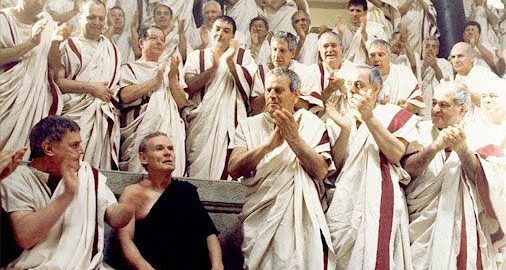The rich Romans looked after their clients. The client was in a literal sense of the word parasite, which in exchange for protection he was ready every morning, according to the custom, at dawn, to appear at the patron’s house to greet him and offer his services. Sometimes the patron had to remind customers of their duties. Readiness to provide services gained great value during the election campaign.
The clientele was indispensable, for example, during the elections, when the candidates applied for the offices. A description of how to get the most clientele and support is presented to us by the brother of the famous Roman speaker Cicero – Quintus, who advises his brother in his letter on how to run an election campaign. Cicero in the year 64 BE applied for the office of a consul who was to be elected by the centurian assembly, organized according to the division of property at 193 centuria. Cicero was aware that he could not count on the support of the highest social class – noblemen – because of his birth. He was so-called homo novus (“new man”). It was a dismissive description of a man who, first in his family, had an office giving him the right to sit in the senate. Cicero in this case had to seek support from other social strata and solicit the largest clientele. Quintus in his letter to his brother gives him tips on how he should act towards them and how to encourage them to support his candidacy. What was certainly not scored during the elections is the length of the candidate’s in order to pay for the clientele and the election campaign. However, with the victory, he could pay off both debts and get rich.
More about the list of Quintis to Cicero below.







